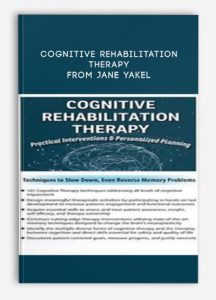 Cognitive Rehabilitation Therapy from Jane Yakel
Cognitive Rehabilitation Therapy from Jane Yakel
More information about Medical:
Medicine is the science and practice of establishing the diagnosis, prognosis, treatment, and prevention of disease.
Medicine encompasses a variety of health care practices evolved to maintain and restore health by the prevention and treatment of illness.
Contemporary medicine applies biomedical sciences, biomedical research, genetics, and medical technology to diagnose, treat, and prevent injury and disease,
typically through pharmaceuticals or surgery, but also through therapies as diverse as psychotherapy, external splints and traction, medical devices, biologics, and ionizing radiation, amongst others.
Medicine has been around for thousands of years, during most of which it was an art (an area of skill and knowledge) frequently having connections to the religious and
philosophical beliefs of local culture. For example, a medicine man would apply herbs and say prayers for healing, or an ancient philosopher and physician would apply bloodletting according to the theories of humorism.
In recent centuries, since the advent of modern science, most medicine has become a combination of art and science (both basic and applied, under the umbrella of medical science).
While stitching technique for sutures is an art learned through practice, the knowledge of what happens at the cellular and molecular level in the tissues being stitched arises through science.
Outline:
CRUCIAL ELEMENTS FOR TREATING THE COGNITIVELY IMPAIRED
IDENTIFICATION AND TREATMEMT OF:
- Self-Awareness: Diagnose levels of, and treatment for patient awareness/insight and acceptance
- Self-Efficacy: Identify four major sources to increase patients self-belief
- Ownership: Interventions to increase patient participation and engagement
- Meaningful Therapy Theory: Making therapy personal!
- Patient self-rating scales
COGNITIVE THERAPEUTIC APPROACHES
- Direct therapy
- Indirect therapy
- Patient-centered
NEUROSCIENCE APPROACHES TO THE MEMORY SYSTEMS
- Declarative/Explicit/Conscious
- Non-Declarative/Implicit/Unconscious
- Work within the correct memory system for diagnoses
MEDICARE COMPLIANCE/MEDICAL NECESSITY/GOAL WRITING/DAILY DOCUMENTATION
- Components of a defensible, skilled goal
- Daily skilled terminology
- Measuring progress and justifying medical necessity
CHANGING NEUROPLASTICITY
- Direct Therapeutic Intervention for High-Level Cognitive Impairment
- Attention Systems: Essential for learning
- Selective Attention
- Focused Attention
- Sustained Attention
- Divided Attention
- Directed Attention
- Shifting Attention
- Visual Processing Systems and How to Maintain Them
- Visual Cognition
- Visual Memory
- Pattern Recognition
- Scanning
- Visual Attention
- Oculomotor Skills
- Visual Fields
- Visual Acuity
- Information Processing Systems:
- Relating them to function
- Processing Speed
- Processing Control
- Processing Capacity
- Memory Interventions for Neuroplasticity Changes in the Brain
- Method of Loci
- Visual Imagery
- Chunking
- Association
- Mental Organization
- Linking
- Elaboration
- Memory Interventions for Compensation Interventions
- Acronyms, Acrostics
- Rhymes, Rhythms, Rote
- Rehearsal and Curve of Forgetting
- Attention Systems: Essential for learning
DIRECT THERAPEUTIC INTERVENTIONS FOR DEGENERATIVE NEUROLOGICAL DISEASES/DEMENTIA
- Spaced Retrieval Therapy
- Errorless Learning Techniques
- Montessori-Based Therapy
- Ability-Based Approaches/Therapy
- Reminiscence Therapy
- Memory Books/Aids
- Allen Cognitive Techniques
- Medications
DIRECT THERAPEUTIC INTEVENTIONS FOR PATIENT COMMUNICATION
- Validation Therapy
- Redirecting Therapy
- Reflective Listening
INTERACTIVE CASE STUDIES
Description:
The United States is facing a situation without precedent: more than 16 million people are living with cognitive impairments and the World-Health Organization estimates that the number will increase to over 30 million by the year 2050, with fewer and fewer people available to care for them. Successful cognitive rehabilitation is crucial to improving overall quality of life—for the patient, family, and caregiver.
In this innovative recording, you will receive instruction in 101 evidence-based techniques, strategies and interventions for all levels of cognitive impairment. Whether a patient presents with a mild or severe cognitive impairment, this seminar teaches which approach to take and which avenue of interventions to pursue. You will be presented with techniques that will change the brain’s neuroplasticity, as well as offer compensatory strategies, and/or enhance a patient’s procedure memory. This recording emphasizes the importance and effectiveness of creating highly individualized treatment strategies and provides attendees with the needed skills to choose and adapt techniques into tailored, personalized therapy plans. Active case studies will be examined and participants will learn to design a patient profile with therapy interventions and goal documentation.


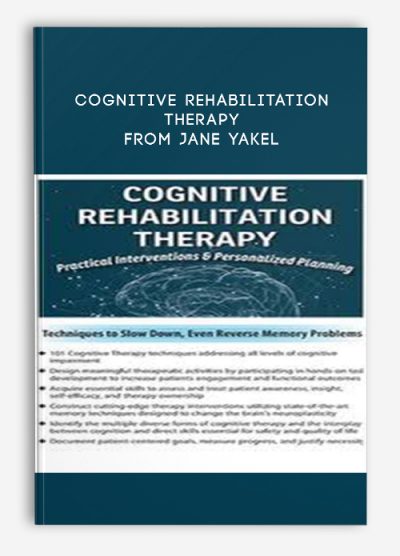

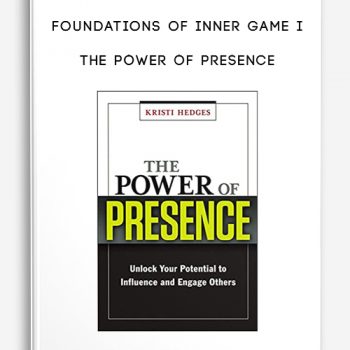
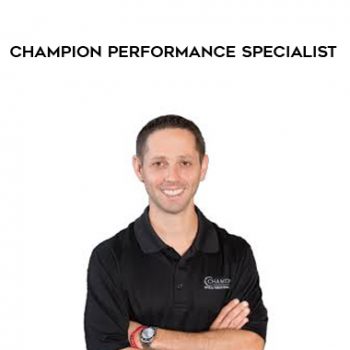





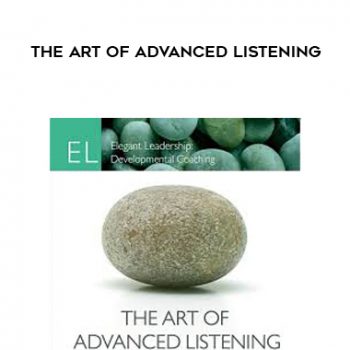

tristian –
This is Digital Download service, the course is available at Coursecui.com and Email download delivery.